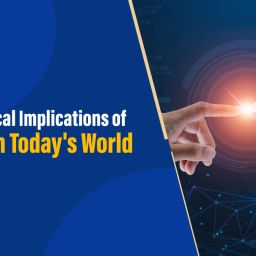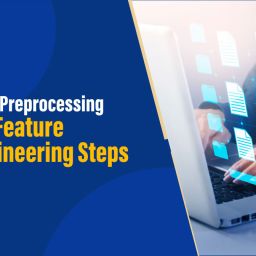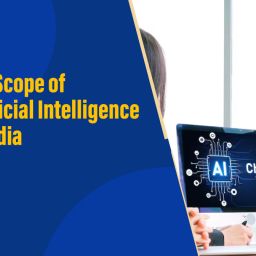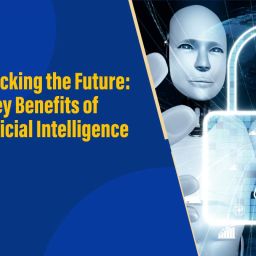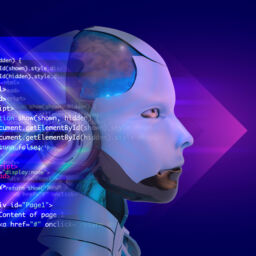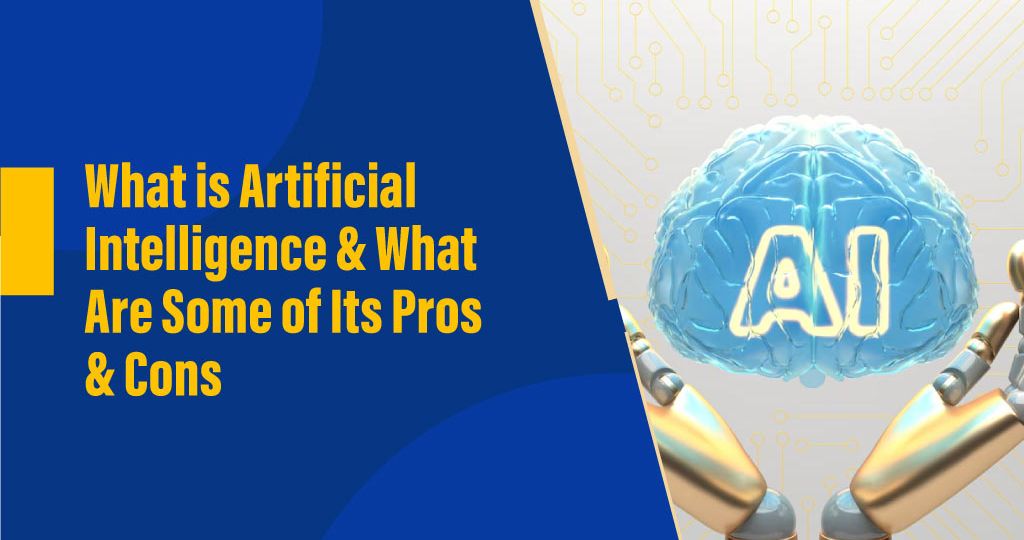
Artificial intelligence, or AI, is present everywhere. AI subtly influences our daily lives, from the instant you ask Siri to set an alarm to the moment Netflix recommends your next series to binge watch. Well, aren’t you impressed? Machines that can understand and decide for us have been made by humans.
However, as thrilling as this sounds, it can also be a challenge. Though AI can appear like a genie that can fulfill our demands, it has also raised serious questions about the pros and cons of artificial intelligence among people that can never be overlooked, like Will AI take up job opportunities and replace humans? Will it treat us as merely figures or as something that understands us?
If you’re interested in learning more about AI and its real-world applications, consider enrolling in one of the top B.Tech Artificial Intelligence colleges in Coimbatore, here you’ll gain hands-on experience in AI technologies and their benefits and challenges.
Artificial Intelligence
Widely ranging from fundamental machine learning to complex neural networks that simulate human thought processes, artificial intelligence is a broad field of technology. In simple terms, artificial intelligence is the ability of machines to do activities that usually demand human intelligence, learn from errors, and adapt to new inputs.
AI Fits into Two Basic Categories:
Narrow AI: This kind of AI is designed to perform one particular task, like picture recognition or language translation.
General AI: Though it is still in the theoretical stages, general artificial intelligence (AI) would be able to carry out every intellectual work that a person can.
Pros and Cons of artificial intelligence
Pros of Artificial Intelligence
Let us now discuss all of the amazing advantages of artificial intelligence (AI) and why it is being used so widely:
Effectiveness and Automation
The potential of artificial intelligence to automate repetitive jobs is one of its biggest advantages. AI is capable of doing tasks swiftly and error-free; it doesn’t matter if they involve managing supply chains, organizing data, or responding to client inquiries; it can get the work done.
Enhanced Output
Productivity is increased by AI-powered machines that can operate continuously. AI, for instance, speeds up productivity in the industrial industry by streamlining production procedures.
Data-Informed Decision Making
Large data sets can be explored by AI and can also spot patterns that humans might miss. AI helps businesses anticipate market trends, but understanding the pros and cons of artificial intelligence is important to make better decisions, and even tailor their marketing campaigns.
Better User Experiences
Smart recommendations for video streaming services and online retailers are driven by artificial intelligence and so by anticipating what you would enjoy based on past history, these technologies streamline your experience. This is an undeniable advantage of AI.
Rewriting Healthcare
One of the most transformative AI applications is in healthcare.
AI is now helping doctors in diagnosis, treatment planning, and even in the discovery of medicines. Artificial intelligence (AI) can help with surgeries, spot trends in patient data, and analyze medical imaging, all of which will speed up and strengthen the quality of healthcare.
Cons of Artificial Intelligence
Still, not everything is positive. Although AI has its benefits, there could also be a few downsides to take into account:
Loss of Employment
Concern that artificial intelligence will eventually replace human labor is one of the most discussed drawbacks of the technology. Because AI automates tasks that used to be done by people, especially in industries like production and customer service, it has the capacity to lead to job losses.
Expensive Prices
The development and execution of AI technology can be very costly. Small businesses could find it difficult to get the funding they need to use AI. The cost burden may also increase due to the necessary maintenance and upgrades.
Privacy Issues
Artificial intelligence (AI) systems depend on data, which occasionally contains sensitive and private information. Concerns about privacy are a cause for alarm because AI is being used widely in sectors including finance, healthcare, and retail.
Decision-Making Bias
AI is susceptible to ingraining human prejudices from the data since it learns from it. In sectors like recruiting, financing, or law enforcement, this may lead to unfair or biased results.
AI’s Prospects
As AI races to evolve, balancing the pros and cons of artificial intelligence has become a lot more important.
Though it has many benefits, artificial intelligence is not without its problems. Vigilant supervision and control needs to be implemented.
The future developments in AI will certainly bring more improved automation, advanced decision-making, and better mainstream technology in our daily lives.
Thus, it is important to strike a balance between ethical duty and technical growth to guarantee that AI is created and applied for the greater benefit of governments, businesses, and researchers.
In short,
Artificial intelligence is here for the long haul, and it is already changing the way we communicate, work, and live. By understanding the pros and cons of artificial intelligence, we will be better prepared to handle its growing influence on society.
So. If you want to stay ahead of the curve, buckle up for a ride with AI, and also be aware that although AI has a bright future, sure it also comes with a lot of obligations as well.



